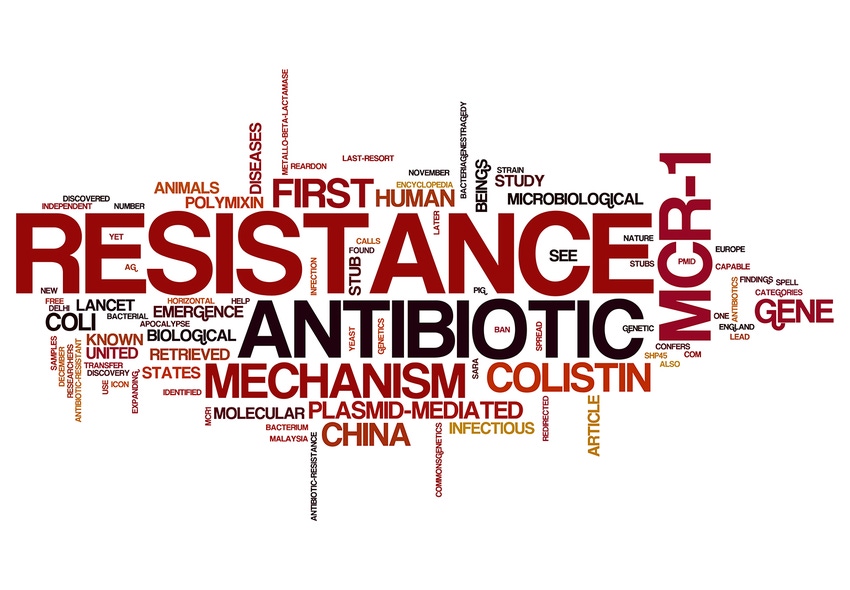U.S. pig farmers making antibiotic stewardship a conscious choice
Today’s pork producers’ continuous improvement efforts felt on global scale.
November 12, 2018

America’s 60,000 pig farmers remain committed to using antibiotics responsibly as they take steps each day on doing what’s right for the health of people, pigs and the planet.
In recognition of the 2018 U.S. Antibiotic Awareness Week and World Antibiotic Awareness Week, Nov. 12-18, America’s pig farmers want consumers to realize the continuous improvement and antibiotic stewardship efforts underway. Part of that commitment is participating in the global One Health initiative with organizations including the U.S. Centers for Disease Control and Prevention.
“Using antibiotics responsibly, under the supervision of a licensed veterinarian, is a part of daily life on pig farms and has been for many years,” says National Pork Board President Steve Rommereim, a pig farmer from Alcester, S.D. “When it comes to keeping our pigs healthy, we continue to use many management strategies on our farms, including biosecurity measures, vaccinations, housing management and more, to maintain the health and well-being of the pigs in our care.”

U.S. Antibiotic Awareness Week, directed by the CDC, is an annual observance to raise the awareness of antibiotic resistance risks and the importance for all sectors — human and animal health and the environment — to responsibly use antibiotics. More than 300 organizations observe Antibiotic Awareness Week, including federal agencies, health departments, professional societies, corporations and advocacy groups. The CDC’s educational effort theme — Be Antibiotics Aware: Smart Use, Best Care — is highlighted during the week’s activities, but is a year-round effort (see #USAAW18 and #BeAntibioticsAware).
Additionally, the NPB continues its participation and collaboration with the CDC’s newly developed Antimicrobial Resistance Challenge (#AMRChallenge). This yearlong effort is an avenue for governments, private industries and non-governmental organizations worldwide to make formal commitments to advance the progress to mitigate antimicrobial resistance. The challenge encourages a One Health approach, recognizing that the health of people, animals and the environment is all connected.
“Antibiotics are powerful tools for fighting disease, but if used inappropriately in people, animals or other applications, it can set the stage for antibiotic resistance,” says NPB’s Heather Fowler, DVM, Pork Checkoff’s director of producer and public health. “Although resistance occurs naturally on its own, we recognize the role farming can play in that area. It is critical that farmers use medically important antibiotics only as necessary for the health and welfare of their animals to keep these compounds effective in the future.”
Fowler reiterates that for the NPB and America’s pig farmers, staying focused on responsible antibiotic use is a year-round effort and not merely during Antibiotic Awareness Week. To understand this more fully, she recommends that people become familiar with the NPB’s Antibiotic Use Position that was revised earlier this year.
A prime example of pig farmers’ long-term dedication to antibiotic stewardship, public health and animal care is the industry’s Pork Quality Assurance Plus certification program, now in its third decade. The program trains and certifies pig farmers and their employees on all aspects of production. This includes farrowing, health monitoring, facility management, recordkeeping and more. This program is augmented by the third-party Common Swine Industry Audit.
Another example of continuous improving regarding antibiotics is the Checkoff research that U.S. pig farmers have funded, which totals $6.5 million since 2000. In 2018 alone, the Pork Checkoff funded nearly $400,000 across multiple research areas to evaluate antibiotic alternatives and other methods to minimize on-farm antibiotic use.
“Everyone has a role in responsible antibiotic-use, whether it involves a medical doctor prescribing an antibiotic, a patient completing a dosage regimen or a producer working with a veterinarian monitoring herd health,” Fowler says. “It’s a lifelong commitment.”
You can follow U.S. Antibiotics Awareness Week on social media @CDCgov and @CDC_NCEZID on Twitter and on Facebook. Be sure to use #USAAW18 and #BeAntibioticsAware.
About the Author(s)
You May Also Like



